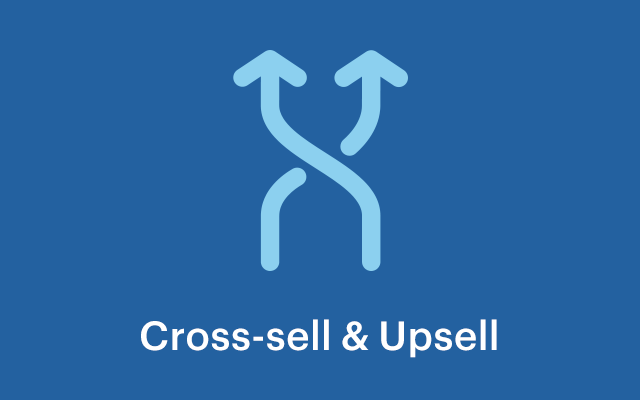There are few techniques in marketing more simple than cross-selling and up-selling. And yet, despite the efficacy of these techniques, they are the ones which are consistently misunderstood and misapplied. In this article, we’ll examine the two techniques, the difference between them and how they can be employed to maximum effect.
Let’s start by defining the two techniques.Up-selling is where you offer a customer an upgrade on their purchase – either while they’re in the process of making it or based on their previous purchases.Cross-selling, on the other hand, is where you try to sell an additional product alongside the one that’s just been sold.Products which complement the main product are ideal candidates for cross-selling.
Let’s consider the most famously effective examples of these two techniques.Imagine that you’ve just walked into a McDonalds and ordered a Big Mac.They could simply take your money, hand you the Big Mac and thank you.And there would be nothing wrong with this – they would be providing the requested product in a speedy, polite manner.
Instead the conversation continues; they ask you further questions and try to sell you other foodstuffs like chips, ice cream and apple pies (the famous ‘would you like fires with that?’).For every given number of people who are asked the question, a few will say yes.
Upselling Should Make Sense
Many of us will have been into a petrol station and been offered some utterly niche savory snack when we come to pay.Sometimes, these are almost comically inept.Would you like a pack of rhubarb-flavoredpork-scratchings with your petrol?The answer, obviously, will be‘no’.
In your upselling, you want to foster repeat business – otherwise the marginal gain from the upsell is completely negated.It is therefore import to upsell in the proper way.A customer who feels as though they are being exploited is not a customer who is likely to form a favorable impression of your business.A business which operates in this way is quite transparently one which has not paid attention to the customer’s wants and feels that it can simply offload their excess (or unsellable) stock.
Cross-sold goods must also complement the main product being sold.A customer who wants to buy a burger is likely to want chips.A customer who wants to buy a television is likely to buy a HDMI cable.But if we offer a cable to the former customer and chips to the latter, the result is likely to be annoyance or befuddlement.
Pay Attention to your Customer’s Wants
Another, related factor in all of this is customer expectation.One of the reasons behind McDonald’s big success is that their upselling is so ubiquitous that the customer expects it and is therefore not turned off when it occurs.A customer who feels as though they are being listened to is likely to be a satisfied customer and a satisfied customer is one who is a great deal more likely to make a repeat purchase.
Sometimes, gauging a customer’s needs can be a little more difficult.Let’s return again to our consumer electronics shop, where a customer is looking to buy a television.The television they have in mind is athirty-two inch television for their tiny studio flat.An attempt to tempt them instead into buying a slightly superior television at £350 might be successful – provided that the salesperson has properly gaugedthe customer’s budget and requirements.Conversely, an attempt to sell the customer a £4,000 enormous television would be doomed to failure – and, perhaps worse, the customer might end up alienated.
Audio-visual equipment is something which offers plenty of scope for upselling, but only where the sales staff are knowledgeable enough to be able to offer the appropriate accessories.Other fields which require specialist knowledge might include cars, DIY equipment and other arcane technology.This scenario would also offer plenty of scope for cross selling.You might try to sell a cheap digital receiver for the cheaper television, or an expensive surround-sound setup for the expensive television.
Measuring upselling
If you’re the person running the business, you will want to know whether your staff are upselling your products as they should be.You can discover this information in one of several ways.You can go into the shop yourself and see how things are done, but this has a disadvantage in that your staff will alter their behavior in your presence.If you really want to know how effectively your staff upsell your products, then you might consider enlisting the aid of a reputable mystery shopping company like Tactical Solutions.

